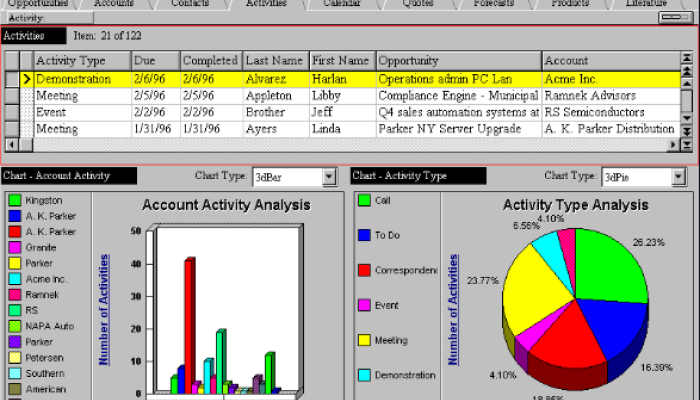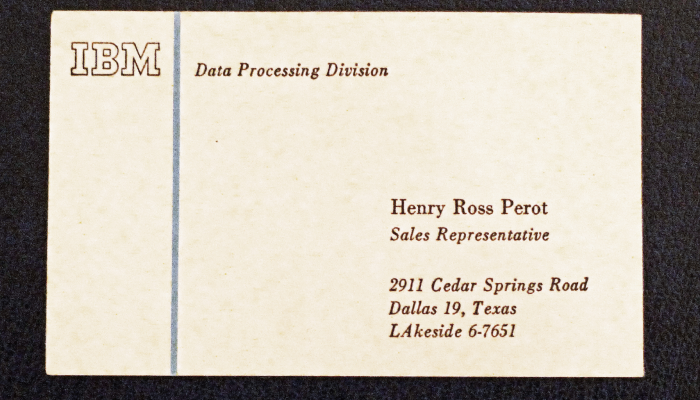
Even though hardly anyone watches cable anymore, the TV infomercials of the good old days still occupy our collective consciousness. The word itself conjures up images of odd gizmos and gadgets being sold by fast-talking men and women for just four easy payments of wow-a-dollar-sure-went-a-lot-farther-in-the-90s-than-it-does-now.
“But wait, there’s more!” is the phrase everyone has heard but not everyone knows was made popular by Ron Popeil, the father of TV infomercials and salesman of the famous Chop-o-matic and Veg-o-matic, both of which were his father’s inventions. Popeil got his start at Woolworth’s flagship store in Chicago, selling the aforementioned vegetable choppers. It was Ron’s job to perform demonstrations on the floor in order to convince the store manager that it was easy to sell his father’s products.
But Ron’s true salesmanship awakening came when he went down to the Maxwell Street Market and saw what it was like in the merchant jungle. “The first time I went there, the proverbial light bulb went on over my head,” he wrote in his autobiography. “I saw all these people selling product, pocketing money, making sales, and my mind went racing. I can do what they're doing, I thought. But I can do it better than they can.”
Popeil took some of his father’s inventory and went down to Maxwell Street. He would do a demonstration of the product every six minutes or so from morning until late afternoon, and then he’d go home and count his cash.
“I didn't have to be poor the rest of my life,” he wrote. “I had lived for 16 years in homes without love, and now I had finally found a form of affection, and a human connection, through sales.”
The human connection was important in more ways than one. With live feedback and questions from audiences, Popeil could learn what product features consumers were most interested in. All of this live selling was great preparation for the sales medium that would make him famous – television. Popeil was already raking in the cash selling at Woolworth’s, on Maxwell Street, and at state fairs in the summer ($1,000 per week), but he was exhausted, and he worried that if illness or accident prevented him from his grueling sales routine, he’d be finished.
So when the opportunity to create a TV commercial for some of his products came, Popeil jumped at the chance. He started with a two-minute commercial which he then edited into 90-second, 60-second, and 30-second versions to be prepared for whatever length of ad-break he could get. Unlike many, Ron’s commercials were unscripted. He had been practicing and perfecting his pitches for years, after all.
By the early sixties, Popeil was selling his products (most of which were invented either by him or his father) exclusively on TV, and by the late sixties, his company, Ronco, was pulling in $8.8 million a year.
Over the years, Ron would peddle such inventions as the Pocket Fisherman, the Inside the Shell Egg Scrambler, Smokeless Ashtrays, and Hair-in-a-Can (“Gone today, hair tomorrow”). He really was the salesman of the century, which is the name of his autobiography, but he did suffer his fair share of setbacks. In 1984, when one of his banks refused to extend a 15 million-dollar loan, Popeil filed for Chapter 11 bankruptcy and bought his company’s entire inventory with his personal fortune for $2 million. He then went back to his good old state fair circuit in order to liquidate it as quickly as possible.
It was Popeil’s electric food dehydrator, which he invented during this sales downturn, that brought him back into the spotlight. It caught the eye of a company who asked him to help them sell it through an infomercial, and just like that, Popeil was back in the driver’s seat, selling his dehydrator and his Showtime Rotisserie and BBQ, which sold over 8 million units in the U.S. In 1992, he received the Ig Nobel Prize in Consumer Engineering, hailed as the "incessant inventor and perpetual pitchman of late night television” and credited with "redefining the industrial revolution" with his products.
Even though Popeil sold his company in 2005, he stayed on as a consultant and continued to invent products. “I think I’ve fulfilled the American Dream,” he once told the L.A. Times. Starting with very little and becoming a wealthy, successful, household name? If that’s not the American Dream, what is?







